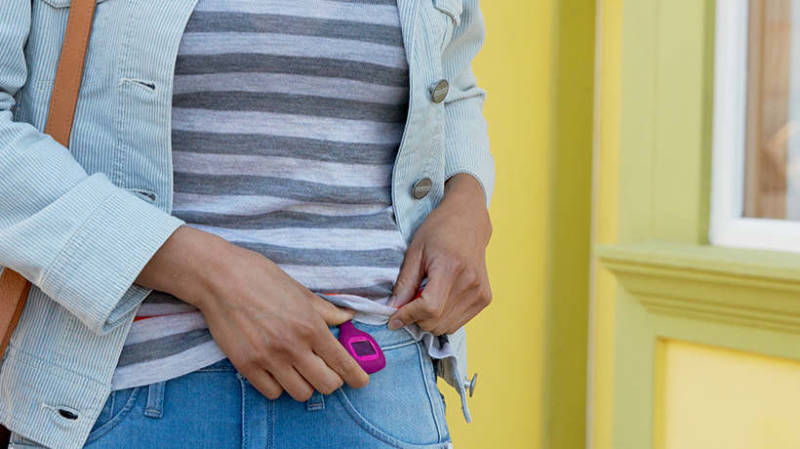The people who got to pocket the cash or donate it to charity logged more daily steps each week than the people in the non-incentivized groups. The cash group also saw a significantly smaller attrition rate -- after six months, just 12 percent of that group had stopped wearing the devices.
No Cash, No Fitbit
But the incentives stopped at the six-month mark. Over the six months after that, by the end of a full year from the study's start, 90 percent of participants in all groups had stopped wearing the devices.
And ... no one had a significant improvement in any health measure.
The researchers attributed the lack of improved health to the reality that an increase in steps does not necessarily translate to much of a boost in moderate-intensity and vigorous-intensity physical activity.
So what is the conclusion here?
"Although other incentive strategies might generate greater increases in step activity and improvements in health outcomes," the researchers wrote, "incentives would probably need to be in place long term to avoid any potential decrease in physical activity resulting from discontinuation."
The lack of any observable health benefits from use of the trackers, they wrote, called into question "the value of these devices for health promotion."
Not So Fast ...
A different study we mentioned earlier, published in JAMA last month, found that those who were put on a weight-loss plan encompassing diet, exercise and counseling actually lost more weight than those who were given the same plus a fitness tracker. That didn't look too good for Team Digital Health.
But not everyone thought the study was relevant. Aaron Coleman, founder and CEO of Fitabase, a company that makes data tools "which make Fitbits awesome in research," published a piece on Medium criticizing news reports that failed to note that the device the users gave participants is now obsolete.
The problem? The device used in the intervention bears no resemblance to a “wearable” as we’d call it today. It was ... a discontinued, very clunky, very clinical looking arm strap and sensor brick called the Bodymedia FIT Core.
Even the amount of data collected in the study suggests that the term “wearable” may be a bit of a stretch, as on the days that participants wore the device, the median wear time was 4 hours (241.1 min/d to be exact).
To equate the user experience of today’s modern wearables, as many have done with this, got me a little sarcastic…
But the study in The Lancet Diabetes & Endocrinology does, indeed, use a newer if not the most advanced tracker, from the leading brand in mobile health. This would seem to address Coleman's main quarrel with the earlier research. So we gave him a call to ask him what he thought.
"They used an actual Fitbit in the intervention, which is an improvement over the last study in terms of trying to make it applicable to modern wearables," he says. But he didn't think the results could be "generalized into day-to-day Fibit wearing."
In the case of Fitbits, Coleman contends, "There's so many other components -- a social network component and having friends involved -- that make the experience."
He says taking more steps, which is what the study incentivized, is not necessarily the right goal. (He personally uses other measures such as heart rate in his fitness regimen.) And he thought the study's design did not equate to use of the devices in the real-world.
"I don't know if incentivizing and handing them a device generalizes to daily life," he says.
As for Fitbit itself, the company issued a statement last week in response to the study. "We are confident in the positive results our millions of users have seen from using Fitbit products," it read. The statement went on to say the company was in the process of improving its trackers.
The study's lead author, Eric Finkelstein, acknowledged that some of the newer fitness wearables have more advanced features, like exercise prompts and social media functions, but he still thinks it is unlikely people will radically change their exercise regimes without a more comprehensive approach.
“These trackers can encourage people to take more steps, but it still seems like these random extra steps aren’t enough to really improve your health,” he says.
Emmanuel Stamatakis, a physical activity expert at the University of Sydney, who was not part of the study, agreed. "We should not be so naive to believe that simply by giving a sleek-looking gadget to someone, they will change deeply rooted lifestyle habits," he says.
In the meantime, Fitbit last week released a case study that it says shows employers can save money in health care costs if employees use the company's devices. The Verge critiques that study here.
Fitabase also last week made public a "Fitbit Research Library" with 167 studies assessing or using the devices.
Associated Press contributed to this report.

